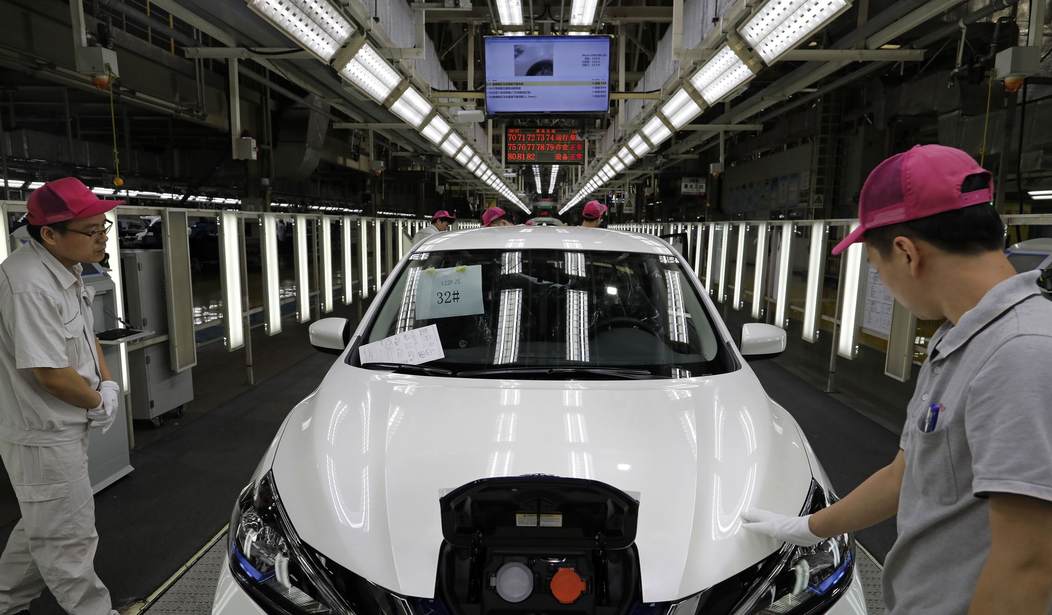Alternate headline: Will the Washington Post put the Babylon Bee out of business? We have barely moved off square one in the progressive push to eliminate internal-combustion engines (ICEs), and we’re already hearing about the upcoming systemic racism in their proposed replacement. Here’s the headline, which is almost a satire in itself of the old joke about media reporting on the end of the world:
Without access to charging stations, Black and Hispanics communities may be left behind in the era of electric vehicles
Get ready for some new and woke vernacular in the EV era. Now we have to worry about “charging deserts”:
Look at any map of charging stations in the United States, and in most of the big cities, what is immediately apparent are big blank spaces coinciding with Black and Latino neighborhoods. Electric vehicle advocates call them charging deserts.
While electric vehicle use is growing rapidly in well-to-do, mostly White communities, minority neighborhoods are being left behind.
Why might charging stations be more prevalent in “well to do” neighborhoods, regardless of ethnic diversity? For one thing, it’s because EVs are more expensive. At the moment, the gap between an average EV and an average traditional car is over $19,000. The Biden administration wants to close that gap by creating more point-of-sale tax credits for EVs, but the up front costs will still be onerous for working- and middle-class Americans regardless of ethnicity.
There are other cost disincentives beyond the price tag too, especially regarding reliability. When one vehicle might make the difference between earning a living and unemployment. How many people who don’t live in well-to-do neighborhoods can afford to run out of juice in their car? Not to mention that repair and insurance costs go up with EVs. Put that all together, and EVs look very much like a luxury for the “well to do” and not a wise choice for those households that need reliable and relatively inexpensive personal transportation.
If the term “charging deserts” doesn’t convince you, how about … “mobility justice”?
“If residents of the city cannot participate equitably in the EV market, that would be a failure,” said Stefan Schaffer, a strategist for the American Cities Climate Challenge at the Natural Resources Defense Council. “You want to make sure all communities can participate in the economy of the future.”
It’s a question, he said, of “mobility justice.”
But without easily accessible charging stations in Black and Latino communities, advocates in Chicago and across the country say, it will be hard to make progress. In urban neighborhoods where residents lack driveways or garages and must rely on street parking, public chargers are a necessity to persuade consumers to buy electric cars. Yet without EVs in place, there is no commercial incentive to install them.
Put aside the question of how public charging would work on this scale, and how the costs would get covered by the drivers. Did the issue of garageless and carport-less city dwellers even occur to the policymakers trying to push out ICEs for EVs?The current infrastructure for personal vehicles leaves car owners/leasers with lots of choices for refueling their vehicles. Even in the “well to do” neighborhoods, those choices will get eliminated in favor of the local utility monopoly, but least they can still access vehicle “fuel.” Anyone living in apartments or in neighborhoods without private car storage will be out of luck.
That’s not an issue of “mobility justice.” That’s an issue of crusading activists not having a clue as to the massive impacts of their utopian proposals. And we haven’t even come to the real issue of “deserts” and “mobility” — the lack of electrical production to match the demand of tens of millions of vehicles requiring daily recharges. That demand will likely come at night too, when solar-power generation drops off the chart and wind power will be unreliable as well.
If we want to avoid “mobility justice” and “charging deserts,” maybe we shouldn’t implement a scheme with this much systemic racism built into it. Who knew the humble internal-combustion engine was so woke?







Join the conversation as a VIP Member